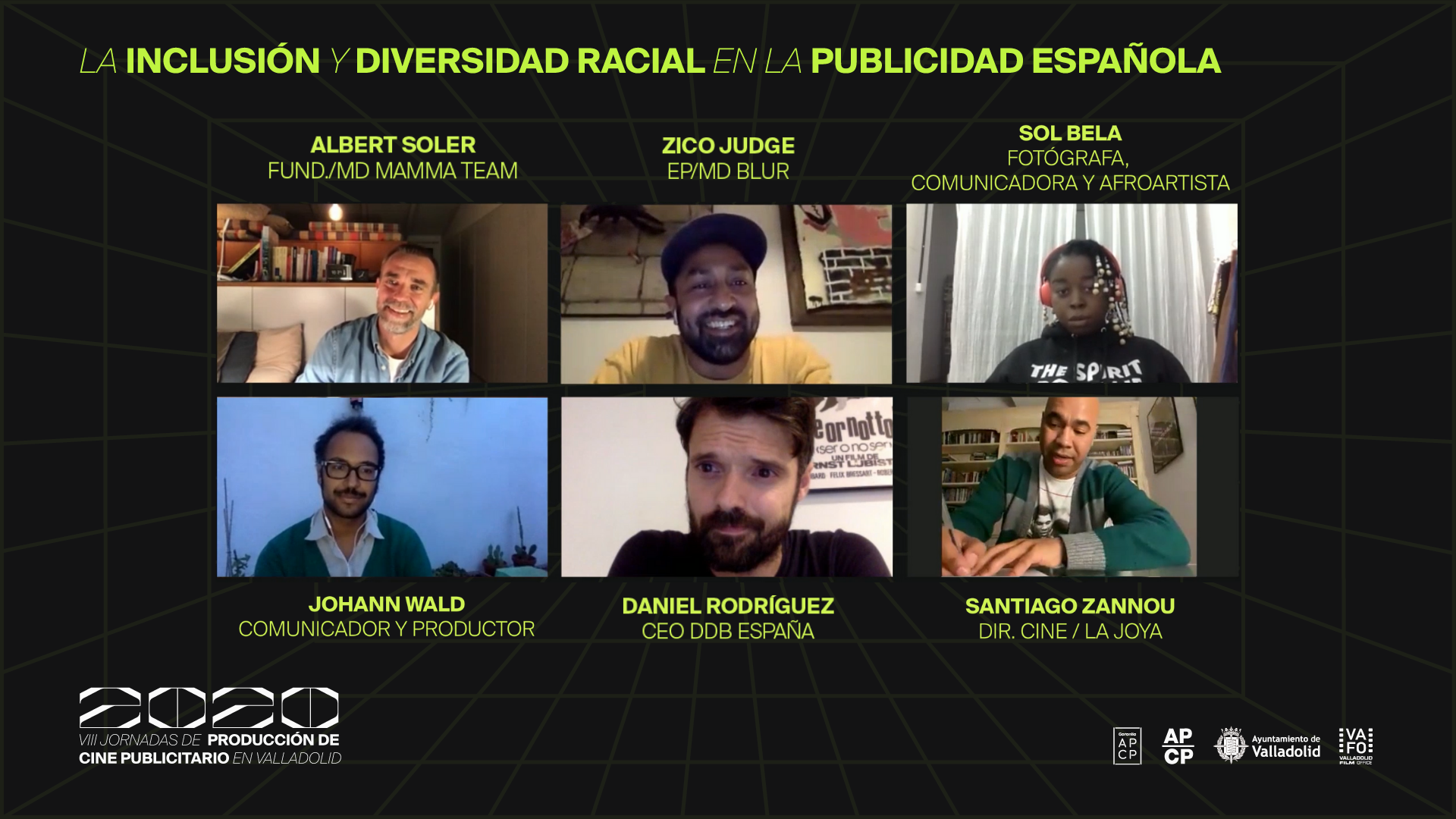
In 2020 the APCP is committed to creating a commission on inclusion and racial diversity to discuss inclusion in our sector and work to create new ways forward.
It’s been a year since the death of George Floyd, a terrible event that was a wake-up call to the social reality we live in. Today we want to continue to highlight the importance of our actions, also in the world of advertising and the audiovisual sector, and in the creation of references.
The 2020 Commercial Film Workshop in Valladolid was a meeting where we all connected for the first time online, from different realities and parts of the world. Feeling close even though we were physically far away.

The premise of wanting to talk about what is often not talked about in advertising was born in them. To bring to the forefront the roles we see on the screens and how all the people who make up our real reality are (or are not) represented. Our aim is to be able to learn new ways, hand in hand with advertisers and agencies.
In pursuit of this objective, on 17 May we organised together with Lucía-Asué Mbomío Rubio the talk entitled: “I am not a racist, but…” Is Spanish advertising in denial? A talk on racial equality within our industry.”
In it, Lucía explained how racism is present in everyone’s life, as it is a systemic problem based on how social and cultural patterns are shaped and not a moral problem. From this understanding, she invited us to analyse the origins of this status quo in order to move towards a more realistic present and future.

The talks took us through what we learn from the time we are in school, through adolescence and into adulthood.
Today, we want to give good examples of commercials produced by APCP production companies that do show diversity as a natural and real fact of our society, in an integrated way.
- Lucía began by explaining that at school “they tell us that all people are equal, but they don’t teach us about equality”, and the importance of role models.
An example to illustrate the importance of referents reflected in this spot:
- We often have unique references: Black people as poor, rural and indigenous people. Asian people as funny or with childish speech. Gypsies as uneducated…
- Asymmetrical discourse: There is a unique narrative.
Here is another example of a spot in which diversity is shown and embraced as something natural, normalised and part of our society:
- In the talk, violence and discrimination based on skin colour or ethnicity were discussed. She talked about racial profiling, the denial of access to entertainment venues or the difficulty in accessing rental housing when your surname sounds like “poor foreigner”.
There are also commercials that make us realise that we still have some way to go, although the fact of bringing it to the fore to be aware of it and denouncing it already makes us see that we are in action towards where we want to be.
- Adolescent role models: just as in school, in adolescence it is important to have good role models who encourage us and make us see that we are capable. To be able to identify with others who make us trust in what we aspire to.
Here are two examples of commercials in which diversity is shown in a natural and integrated way:
This recent campaign, also produced by an APCP production company, reflects on how to stop being “who others say we should be”. It criticises the way we act conditioned by cultural and social standards.
As Lucía said in the talk, discrimination based on skin colour, sex, gender, ethnicity, religion, origin… is something we have learned.
If only we could think as adults, remembering what we felt as children, before we learned what differentiates us from the other, instead of what unites us.
Finally, we end with a recent international campaign that, although it has not been produced by one of our production companies, we find interesting to show and see how together, person by person, country by country, we can make advertising a benchmark sector in inclusion.
Amidst all the noise, let’s create aspirational discourses that tend to be more and more real, focused on contributing to a more inclusive and sustainable society.





